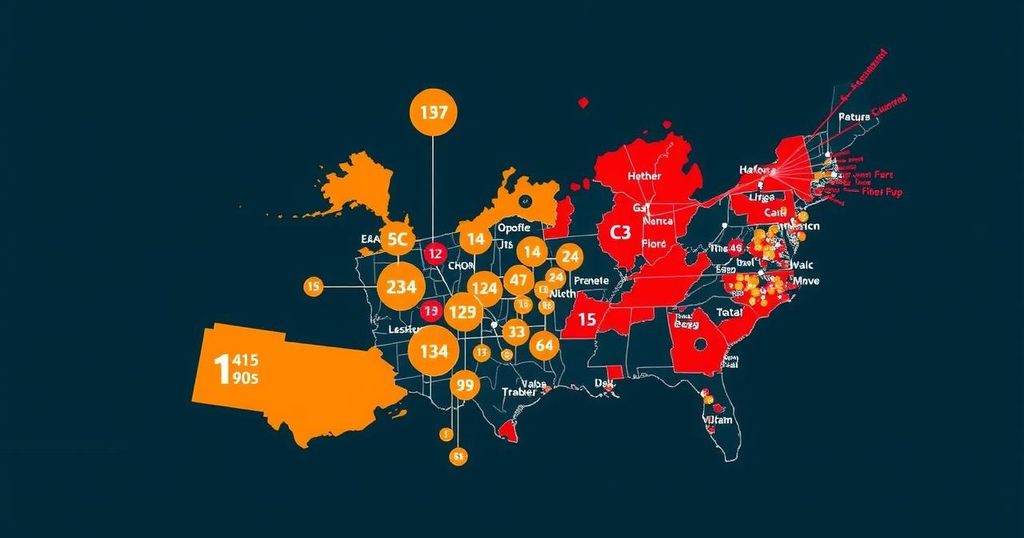World news
’ EL ALZAYAT, ASIA, CONFLICT, EMGA, EUROPE, FOREIGN POLICY, GAZA, GAZA CONFLICT, GAZA STRIP, ISRAEL, ISRAEL-HAMAS CONFLICT, KANTARAWADDY TIMES, KANTARAWADDY TIMES SEIN WIN, MIZZIMA, MONDOWEISS, NORTH AMERICA, SAM, STATES, THE WASHINGTON POST, UKRAINE, UNITED STATES, WA, WA ’ EL ALZAYAT, WAR, WHITE HOUSE
Oliver Grayson
0 Comments
The Impact of the Gaza Conflict on the U.S. Presidential Election
As the U.S. presidential election narrows, the Gaza conflict is influencing voter preferences, particularly within the Arab American community, traditionally Democratic. The Biden administration’s support of military actions has prompted some voters to lean towards Trump, causing concern within the Democratic Party.
The impending United States presidential election is proving to be exceptionally close, with voter sentiment significantly influenced by the ongoing war in Gaza. Many Arab American voters, traditionally aligned with the Democratic Party, are exhibiting a shift towards supporting Donald Trump due to the Biden administration’s backing of military actions in the region. This shift is causing considerable alarm within the Democratic Party’s electoral apparatus as they face possible defections from key voter demographics. In the context of this election, several critical issues arise, including potential ramifications for various international conflicts, namely those in Gaza, Ukraine, and Sudan. The humanitarian crises associated with these conflicts continue to strain public empathy and voter priorities. As major media outlets prepare for the possibility of a Trump victory, they are navigating their editorial choices with caution, as evidenced by the withholding of presidential endorsements by influential publications such as The Washington Post and The Los Angeles Times. This strategic silence speaks to a broader uncertainty regarding the electoral outcome and its implications for U.S. foreign policy.
The relationship between the ongoing conflict in Gaza and the political landscape of the upcoming presidential election is characterized by a significant shift in voter sentiment, particularly among Arab American constituents. Historically aligned with the Democratic Party, this demographic finds itself reconsidering its support in light of the Biden administration’s stance on the Gaza conflict. The urgency of this realignment is amplified by the time-sensitive nature of the election, posing challenges for the Democratic Party and raising questions about their electoral strategy. Furthermore, the implications of this voting behavior extend beyond domestic concerns, influencing potential U.S. involvement in international conflicts.
In summary, the Gaza conflict is a critical factor impacting voter behavior in the upcoming U.S. presidential election. The traditional support for the Democratic Party among Arab American voters is precariously shifting towards Republican candidate Donald Trump due to the Biden administration’s policies. As the election approaches, this volatility poses a challenge for the Democratic Party and indicates a broader re-evaluation of public sentiment regarding U.S. foreign policy. Media outlets are also cautiously observing these developments, with the potential for significant implications based on the election’s outcome.
Original Source: www.aljazeera.com




Post Comment